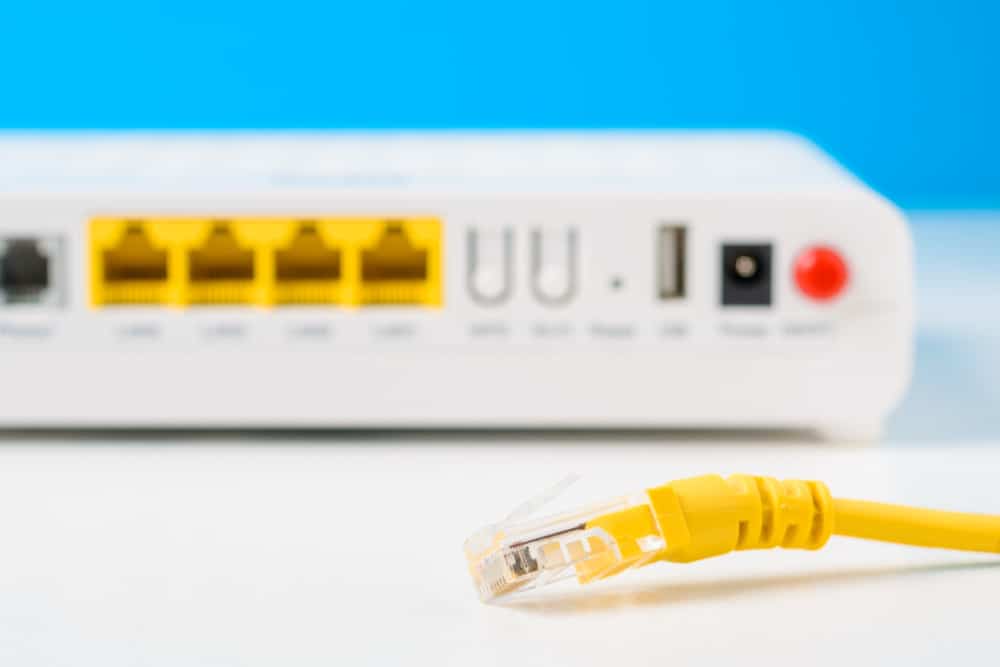6 Things You Need to Avoid When Purchasing Internet

Purchasing an internet plan can be simple and quick, but if you want to get the most suitable plan for your needs, you need to do some research. This will help you avoid any surprises about hidden fees and data caps, or being stuck in a contract that you don’t want. Before you get out your credit card, we’ve highlighted six things you have to avoid when shopping for internet.
Our Video on ISP Tricks to Avoid
No time to read the article? Don’t worry! Watch our video and subscribe to our YouTube channel for more helpful videos on all things internet.
Choosing Speeds That Don’t Match Your Needs
One of the most important features to consider when buying an internet plan is the speed. The last thing you want to do is sign up for a plan with speeds that are slower than what you need to work from home or watch Netflix movies in HD.
Internet speed is most commonly measured in megabits per second (Mbps). If you use the internet only to check emails and browse web pages, you might be satisfied with slower connections such as DSL or fixed wireless. If you’re streaming videos or music online or downloading large files, you’re going to need a faster connection such as fiber or cable.
Most broadband connections are “asymmetrical,” meaning they have different download and upload speeds. Download speed is important when watching videos online or browsing the internet, while upload speed is important for sending emails, online gaming, and video chatting. For most internet users, download speed is more important. If you need high upload speed, fiber offers “symmetrical” download and upload speeds.
Determine Your Internet Speed Requirements
Take a speed test to find out how your internet performs. This will help you gain a better understanding of your internet speed requirements so you can make an informed decision when purchasing internet service.
If you’re an online gamer or perform activities that are in real time, check your ping. It measures, in milliseconds, the latency, or lag, associated with your network sending and receiving data packets. Ideally, your ping should be less than 50 milliseconds. Anything above 200 milliseconds will produce lag. Keep in mind that your geographic location, time of day, and firewall configuration on your device affect your ping.
Choosing a Plan With Data Caps

Some internet plans come with a monthly data cap, which helps internet service providers (ISPs) monitor and control bandwidth usage on their networks to minimize network congestion. If a user exceeds their data cap, they might have to pay for extra data or face a service cutoff. Data overage fees are typically high and quickly accumulate to a substantial amount on your internet bill. If you think you’ll need unlimited data, make sure you purchase an internet plan that doesn’t have a data cap.
Get Internet With Unlimited Data
The good news is that several ISPs offer internet plans with unlimited data or ones that have very high data limits. If you frequently stream movies and shows or do online gaming, it’s best to go with an internet plan with no data cap. DSL, satellite, and fixed wireless internet plans are likely to have data caps, while cable and fiber internet plans have a 1 TB data cap or unlimited data. Check out this comprehensive list of internet providers that offer unlimited data to choose the right plan for your needs.
Being Misinformed About Connection Types
A common mistake when purchasing internet is not choosing the right connection type for your household needs. The type of internet you choose will determine the speed, reliability, and coverage of your online experience. Some of the most common types of internet plans include DSL, fixed wireless, cable, and fiber.
DSL
DSL (digital subscriber line) service uses your telephone line to connect you to the internet. You won’t get fast speeds, but DSL is widely available because it’s been around the longest and has more infrastructure. DSL allows you to use your phone and the internet at the same time.
Fixed Wireless
Fixed wireless internet offers excellent coverage in rural areas where wired connections such as fiber and cable are unavailable. The downside to fixed wireless internet is the bandwidth, as it needs a direct line of sight from your home to the cell tower from which your ISP operates its network.
Cable
Cable offers faster speeds compared to DSL and fixed wireless. Cable internet uses the same coaxial cables that are used for cable television. One of the downsides to cable is that it’s susceptible to network congestion, leading to bandwidth issues during peak hours. However, cable speeds are often on par with fiber internet speeds.
Fiber-optic
Fiber is one of the newer broadband technologies, offering lightning-fast speeds through fiber-optic cables. With fiber, download speeds mirror upload speeds. As fiber connections are relatively new and require a wholly independent infrastructure, coverage can be an issue, but ISPs continue to expand their service.
Make sure to check national internet coverage in your area based on the internet type and ISP. ISPs also provide bundles where you can get TV and phone services along with an internet plan. You’re likely to get a better deal with a bundled plan, but don’t hesitate to take a mix-and-match approach by getting internet, phone, and TV from separate providers. We understand that you want to keep your costs to a minimum, but getting poor service might not be worth the savings.
Overlooking Your Contract Terms

One mistake you should avoid is skimming the contract terms, which are designed to protect your interests as well as the ISP’s. The contract should be clear on the monthly rate, contract length, fees, and other crucial details. Some internet plans require a contract, which means you need to stick with the ISP until the contract ends or pay an early-termination fee.
If you feel like you’ll need to cut service midway, stick to contract-free plans. It’s also good practice to ensure the contract is no longer than the remaining term of your lease so that if you have to move, you won’t have to pay the early-termination fee.
Your monthly rate may change after the promotional period. Users are often surprised to find an increase in their internet bills because they’re not aware that promotional rates apply only for a certain period of time before they return to the regular rate for the rest of the contract. Don’t hesitate to call your ISP to negotiate the price hikes, as ISPs are often willing to bring the price down for loyal customers or offer new promotional plans.
Missing Out on Promotions
Consumers are often quick to pull the trigger on purchasing an internet plan without doing research on promotional plans offered by an ISP. Even though the regular rate may sound reasonable to you, it’s always best to check the latest internet deals and promotions. The most common deals include reduced monthly pricing for the first year or no equipment fees.
It’s also a good idea to compare internet service plans to find the best deal. Using an internet comparison tool allows you to compare pricing, speeds, and services. Some ISPs are also willing to match a promotion offered by a competitor, so don’t hesitate to talk to the sales rep to request price matching.
Avoiding Customer Reviews
An important part of your research when buying internet service is to read reliable customer reviews. It might also be worth checking the Better Business Bureau (BBB) to gauge how the ISP handles customer complaints and what common issues come up when using the ISP’s service.
Ideally, you want to read reviews that are based in your location, as the service quality varies. Search for information about the installation process, customer service response times, internet downtime frequency in your area, and so on.